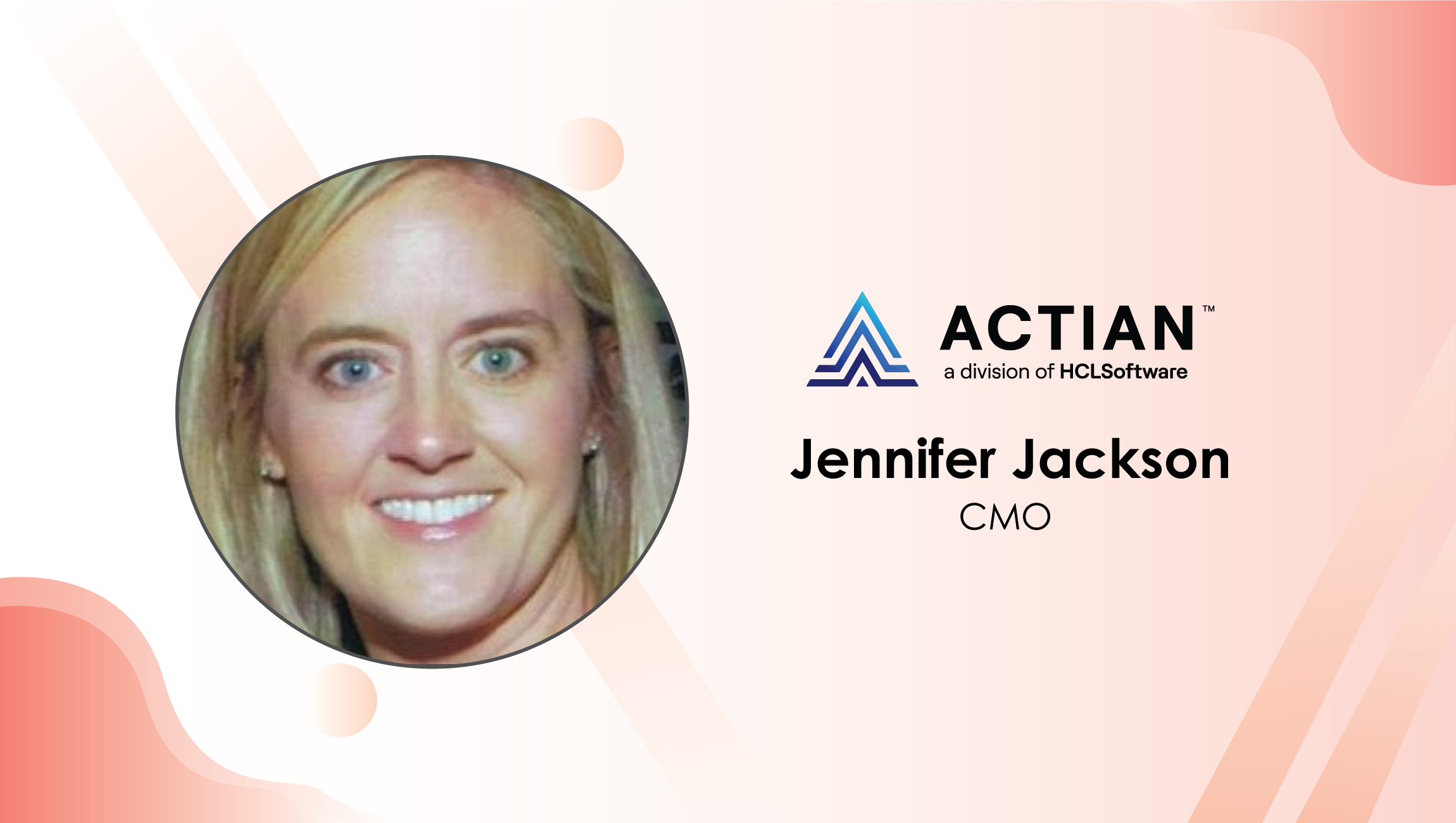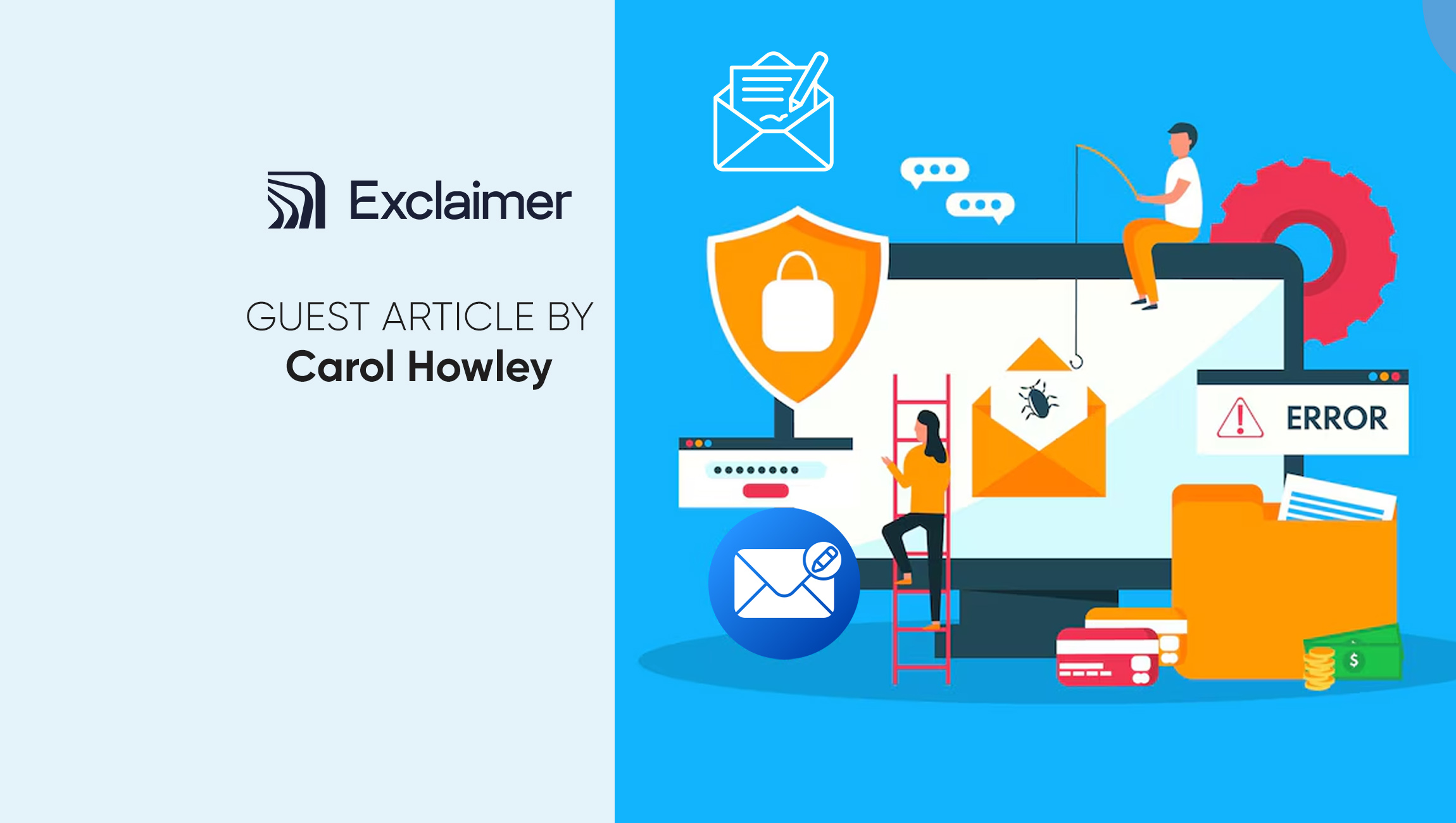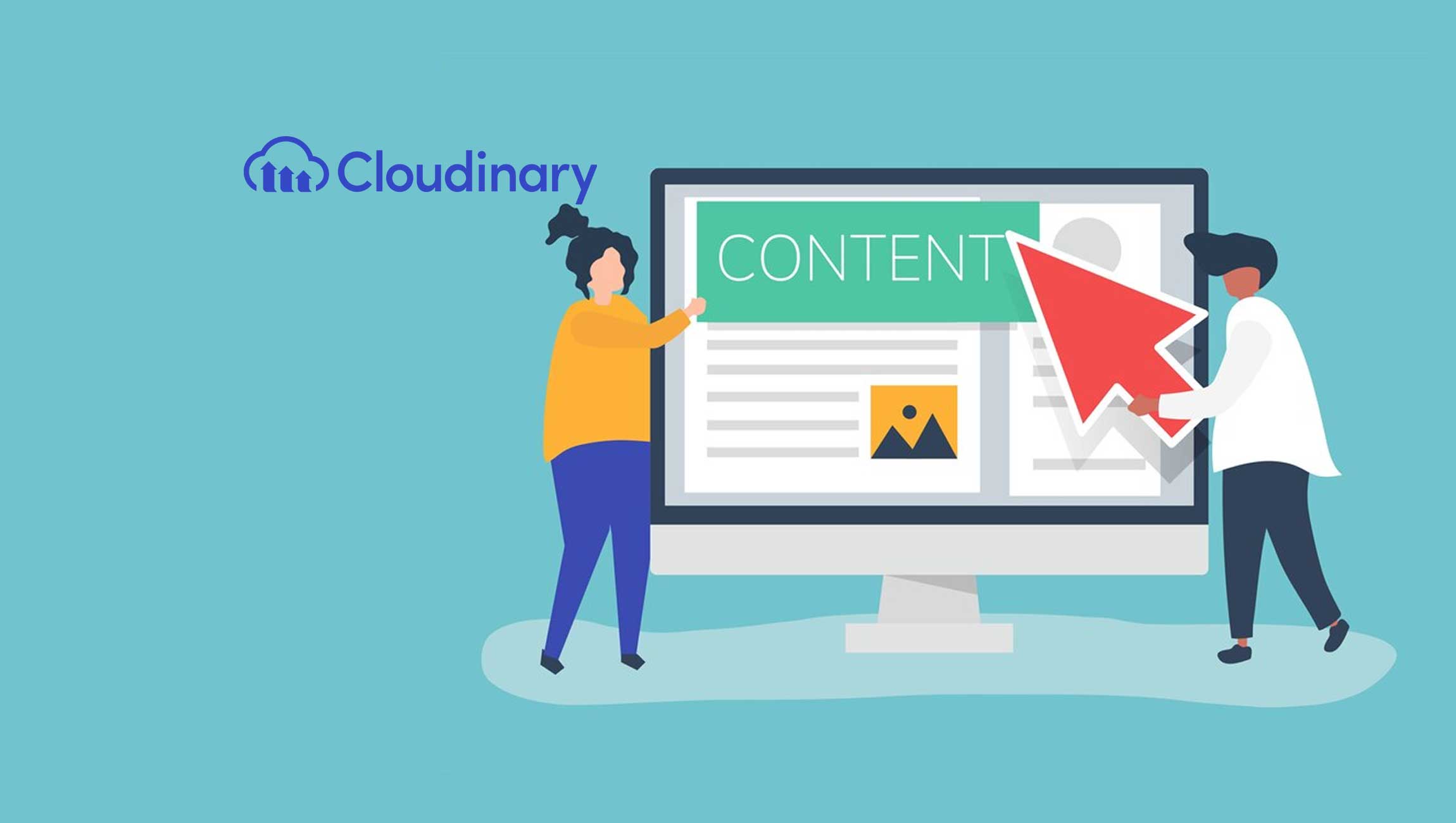Jennifer Jackson, CMO at Actian discussed the latest AI and martech trends in this chat with MarTechSeries:
________
Welcome to this MarTech Series chat, Jennifer, tell us about your journey in the B2B tech world and also about some of your key marketing highlights from all along?
My journey into B2B tech started in an unorthodox way: I began in chemical engineering. During that time, I realized that I was more fascinated by the business side of the chemical industry than the actual chemistry itself, so I decided to make a hard pivot and pursue an MBA. That degree set me on an entirely new career trajectory of marketing and communications in the world of data.
I spent a few years at Teradata before becoming the CMO of Actian. It’s always felt like the perfect fit. I’ve been an avid user of data technologies throughout my engineering days and my marketing career – and it’s easy to work in marketing for a space that you’re deeply passionate about.
At Actian, I’ve led a full-fledged transformation of our marketing function. We’ve grown the team over 5x its original size and changed everything about how we operate and go-to-market. It’s been an incredibly rewarding journey to build out a high-impact, data-driven marketing machine basically from the ground up here.
What about today’s state of B2B SaaS marketing needs a complete shift?
There seems to be a pervasive view that B2B marketing is easy, but with thousands of martech vendors, that couldn’t be further from the truth. An overwhelming number of vendors and martech categories launch each year, so nailing down both the marketing strategy and tech stack architecture becomes quite the challenge.
Good marketers are also hard to find. It’s rare to find marketers who understand the intricacies of the entire marketing engine and can navigate this increasingly complex landscape. We need more marketers who can deftly juggle data analysis, killer messaging, and robust marketing operations know-how. Not everyone can roll up their sleeves to analyze data, craft differentiated positioning, and seamlessly orchestrate execution all at once. But that full skillset is table stakes if you want any chance of breaking through the noise nowadays.
Marketing Technology News: MarTech Interview with Niklas Ingvar, Co-founder and Chief Product Officer @ Mentimeter
Actian recently created a Gen AI Data Readiness Checklist for end users: can you summarize a few of the top highlights from the checklist for our readers?
Generative AI is the hottest topic in enterprise tech currently, with organizations racing to deploy these powerful new capabilities for mission-critical use cases. Many businesses, however, are overlooking their data readiness to fuel effective Gen AI implementations. Poor data preparation can completely derail an AI initiative before it even begins. In fact, Actian’s recent research found that 87% of professionals agree proper data prep is extremely important for optimal generative AI outcomes. Yet only 4% of people in charge of data readiness said they were ready. That’s a massive disconnect.
Actian developed a Gen AI Readiness Checklist that serves as a practical guide for organizations looking to mitigate risk and lay the proper data groundwork before embarking on Gen AI deployments. The checklist provides a framework for conducting conversations with stakeholders, defining data quality, planning for data quality lifecycle management, and creating a balanced generative AI strategy. From a tactical standpoint, it provides step-by-step tips and considerations on topics like real-time data integration automation and data cleansing. The checklist is designed to be a reality check for enterprises looking to transform their company with generative AI. The potential of generative AI is unlimited, but laying the groundwork for data prep must be step one.
Can you talk about some of the most interesting marketing experiences you’ve seen in B2B SaaS and what key takeaways you’d share from them?
One of my most exciting marketing journeys has been the transformation we’ve gone through here at Actian. When I first arrived at the company, there wasn’t a robust marketing function or a clearly defined brand narrative. We’ve had to build that up systematically. Over the years, we’ve hired a talented marketing team, crafted a compelling brand story, and ultimately more than doubled our brand awareness. Seeing that marketing transformation unfold is definitely one of the achievements I’m proudest of.
I’ve learned a few lessons through that experience. First, hiring great people is crucial, and having a talented, dedicated marketing squad makes an enormous difference. Second, investing time to build cross-functional relationships and aligning with peers across the business is vital. And finally, in-person time is essential. There’s just really no substitute to getting the team together periodically to collaborate and drive our marketing engine forward.
Tell us more about your marketing strategies that you’ve relied on over the years to boost impact and the martech that has helped power it all?
One of the core marketing philosophies I hold is letting data drive our strategies and decision-making. The data never lies – if you really listen to what the numbers are telling you, it will point you in the right strategic direction every time. That’s been a guiding principle of mine for years.
At the same time, I’m a firm believer in getting outside perspectives and expertise to complement our internal efforts. Whether it’s tapping industry analysts, partnering with agencies, or leveraging vendor relationships, getting that external point of view is invaluable. It helps counter any insular thinking or blind spots we might have.
Ultimately though, for me it all comes back to the fact that content is king. You can have the best data, the sharpest external advisors, but if you don’t have compelling content that truly resonates, it won’t move the needle. Everything flows from having that authentic, impactful voice and message. It’s what you show up with.
How do you use AI in your current marketing plans and martech stack?
AI has been an increasingly important tool in our marketing arsenal lately. One of the biggest uses we’ve found is for ideation and content creation assistance. Instead of always starting from a blank page, we’ll feed AI models some prompts, keywords, or general topic areas, and use the output as a creative springboard for campaigns, messaging, and content briefs. We’re also starting to experiment with using AI for more advanced tasks like verticalized content adaptation. It’s still early days, but the potential upside is huge from an efficiency standpoint.
Even for high-stakes initiatives like product launches, I’ve found AI to be a valuable personal planning aid. I’ll prompt it with some basic parameters around the new offering, target market, and go-to-market objectives, and use its outlined playbook as a rough first draft to refine and build upon.
AI hasn’t revolutionized marketing for us yet, but it’s become an indispensable utility for ideation, creating content efficiencies, and jumpstarting our planning processes. I expect we’ll only find more creative ways to leverage it across our martech stack and strategies in the years ahead.
Can you share your thoughts on the future of AI, marketing and martech: what will the market look like down the line?
I think we’re on the cusp of a seismic shift in how marketing – and really every business function – operates due to advances in AI. Machine learning has been around for decades, but this new era of generative AI feels like a true paradigm shift in terms of its potential impact.
Every job, including marketing roles, is going to be fundamentally transformed by AI capabilities. That said, I don’t see it as an existential threat, but rather as a productivity multiplier. Good marketers will become great with AI assistance, and exceptional marketers will be able to go totally stratospheric by leveraging these new tools.
There are so many potential areas of impact, but a couple that really excite me are advanced data analytics and supercharging human creativity. AI can ingest and synthesize data from myriad sources in ways that augment and expand our own analytical capabilities. Combined with a skilled analyst’s intuition, that’s an extremely powerful combination.
On the creative side, I actually think AI will enhance rather than replace human creativity and ingenuity. The human mind and our capacity for novel ideas are still incredibly unique and challenging to replicate with technology fully. But AI can elevate and spark new creative directions for brilliant marketers in ways we’re just starting to explore.
I get a lot of questions about what I think is the future of AI and human creativity. Personally, I don’t think AI will ever fully replace human marketers. You always need that personal touch, authentic voice, and qualitative filter that machines can’t replicate. AI is a force multiplier, not a replacement. It needs a “babysitter” of sorts to reign it in and add the human sparkle.
Marketing Technology News: The Engagement Boom: What Marketers Can Learn From The Gaming Industry
Actian makes data easy. Actian delivers cloud, hybrid, and on-premises data solutions that simplify how people connect, manage and analyze data. Actian’s data platform integrates seamlessly, performs reliably, and delivers industry-leading speeds at an affordable cost. Actian is a division of HCLSoftware.
Jennifer Jackson, is CMO at Actian












